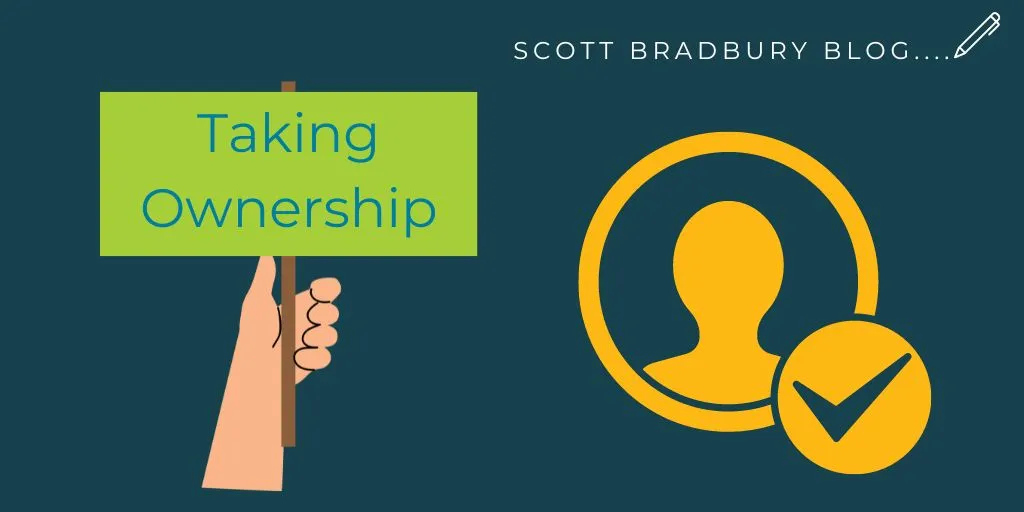
‘Accountability’ is a word that’s often used in value statements and Leadership Frameworks but what does it mean in practice? I find that people use ‘accountability’ and ‘responsibility’ interchangeably although they have slightly different meanings, and whilst these qualities are actively encouraged by organisations, it’s not at all clear that people understand how to ‘live’ them.
An accountability culture
The recent Post Office Horizon scandal saw ex-CEO Paula Vennells questioned about her role when hundreds of innocent sub-postmasters were wrongly prosecuted for fiddling the books. The blaming of others and the over-reliance on other people’s words, is a good example of someone seeking to shift the blame and denying accountability. She may not have been responsible for everything that happened at the Post Office at that time, but Paula Vennells was most certainly accountable. Her testimony in court gave a frightening glimpse into the culture of the Post Office at the time.
In cases such as these it’s easy to point the finger, to reassure yourself that you would never do that. But every day, managers and non-managers alike, from the most junior to the most senior, from the least to the most experienced employee, seek to deflect blame and deny ownership of their actions.
Whilst it’s relatively easy to identify the ‘correct’ course of action when viewed objectively from a distance, it’s much harder to ‘do the right thing’ in the heat of the moment and when you’re under pressure. Have you ever written an email you regretted? Have you ever ‘covered your tracks’ or allowed a mistake you’ve made to slip by without comment?
Being accountable is even more difficult when you’re worried about the implications of owning up to a mistake or if you’re afraid of coming forward to admit an error. And that’s why organisational culture is so important. People need to know that if they tell the truth they will be praised for their honesty; that if they take an ethical approach they will be praised for their professionalism. It means giving examples, not just stating values. It means providing real case studies of when an employee has come forward to own a mistake and how this has been valued and turned into a positive learning opportunity.
Knee-jerk reaction
‘It wasn’t me!’ is the phrase we all learn as children when confronted with an angry parent. For something that’s so deeply rooted in our psyche, it’s not surprising that denial is our knee-jerk reaction when something goes wrong.
Only last week, a client was telling me how when an employee was asked the question, ‘Why did you do it that way?’ they denied any liability at all for doing it ‘that’ way. Even though there was a paper trail that suggested otherwise. Damaging past experiences of ‘getting the blame’ and being made to look bad overwhelm any attempt to fess up, even when the evidence is stacked against you. So organisations have to work especially hard to let their people know that they will support them when they put ‘being accountable’ into practice.
Speaking up with confidence
To say, ‘yes, that was me’ takes courage and confidence. And, I would suggest, it also requires practice in a safe context too. People need to ‘unlearn’ that knee-jerk response and experience how taking ownership leads to positive outcomes in the longer term.
Providing people with practical activities and resources to encourage accountability underlines an organisation’s commitment to making it a lived reality. And it helps everyone to recognise that it’s what’s expected of them.
In our short video ‘What to Say When It’s Someone Else’s Fault’ we see Gordon learn why it’s so much better to focus on the problem rather than waste time on finding someone else to blame. The video is a good example of the difference between ‘responsibility’ and ‘accountability’ too. Gordon has used incorrect data in a report and his manager is unhappy with the error. Gordon learns that although he isn’t responsible for the data, which was supplied by a colleague, he is accountable for the delays caused by the incorrect reporting. By stepping up, taking ownership of the situation and delivering a solution, he demonstrates accountability. A valuable lesson.
Our interactive Skills Challenge for this month is ‘Being Accountable’ and this enables people to think about different scenarios and decide which course of action demonstrates accountability. By practising such decision making in a safe learning space the culture of accountability is reinforced and promoted. And that means people are far more likely to behave in the way you want them to when working under more pressurised conditions.
Learning from mistakes
Being open to learning from when things go wrong is another major benefit of accountability. A mindset that focuses on preventing similar problems in the future and that seeks to problem-solve rather than point fingers, encourages professionalism and honesty.
Focusing on the positive wider learning benefits of exploring genuine mistakes is a major incentive for encouraging people to be proactively accountable for their actions. When someone steps forward, speaks up and takes the initiative to share the learning - even from a serious ‘never’ event - people feel rewarded and you get a virtuous spiral of continuous improvement, as our video Learning from Mistakes: The No Blame Gain illustrates so well.
Making people feel valued for their honesty and respected for their accountability is essential.
And that’s something Paula Vennells failed to understand.
For a free trial of WATCH & GO® resources, including titles on ‘accountability’, ‘integrity’ and ‘establishing credibility’ and much more, please go to: https://www.scottbradbury.co.uk/free-trial/
Catherine de Salvo
1 July 2024
You can contact Catherine at catherine@scottbradbury.co.uk or via LinkedIn